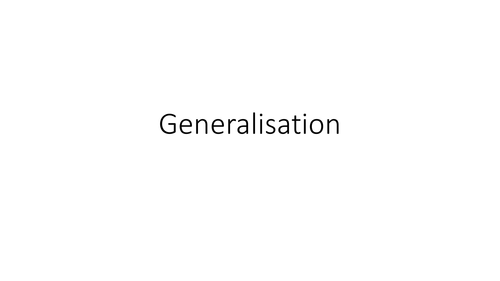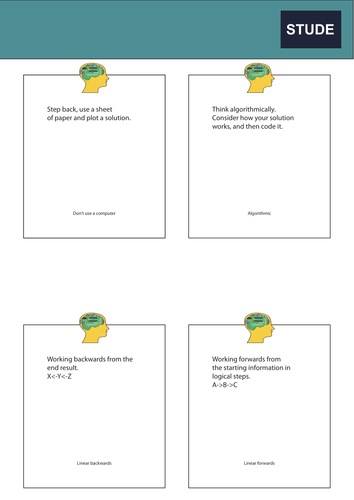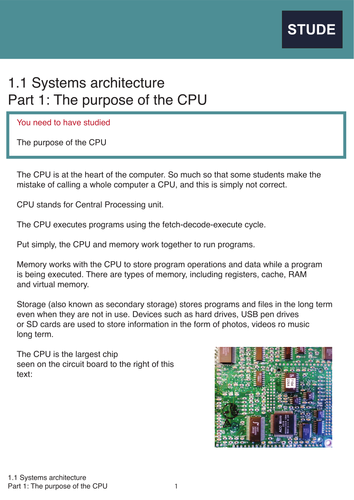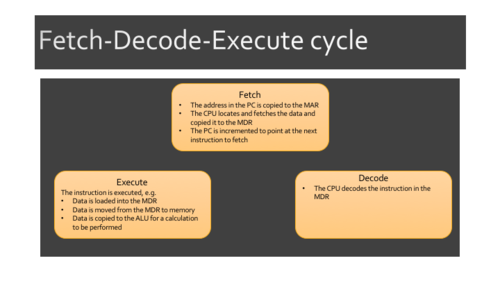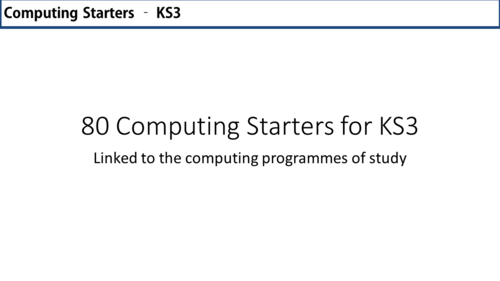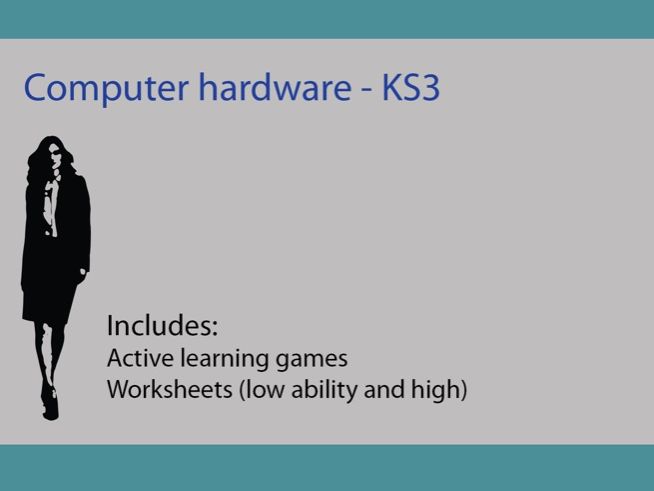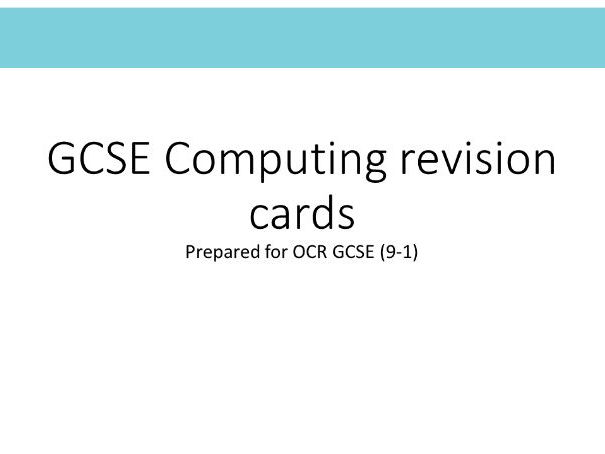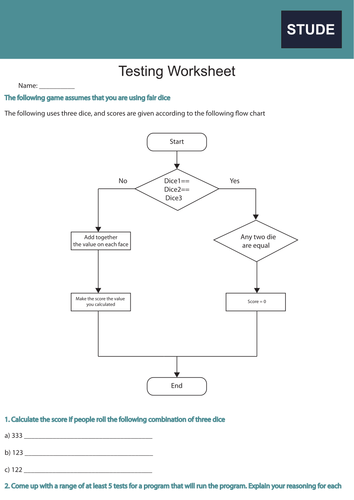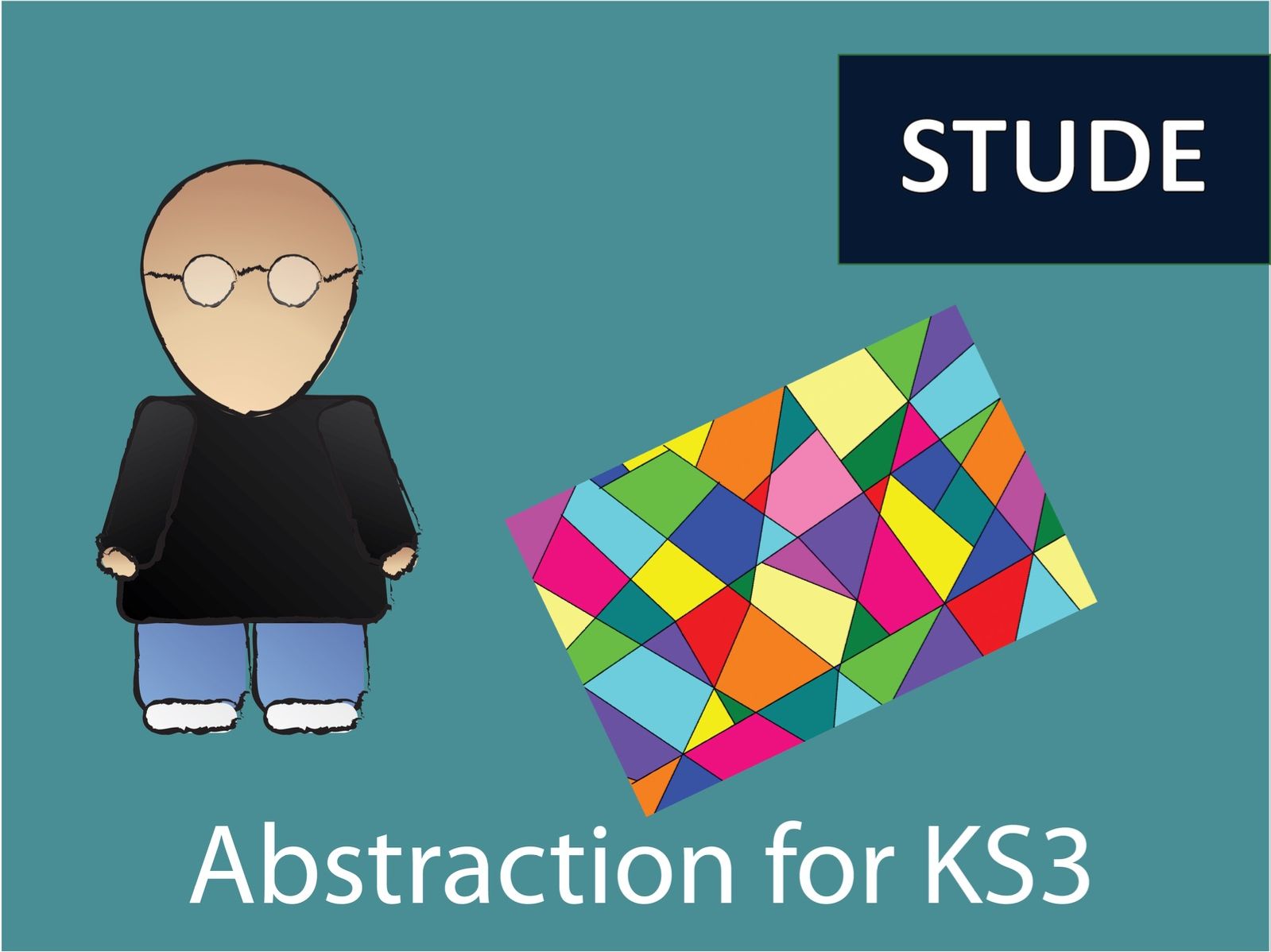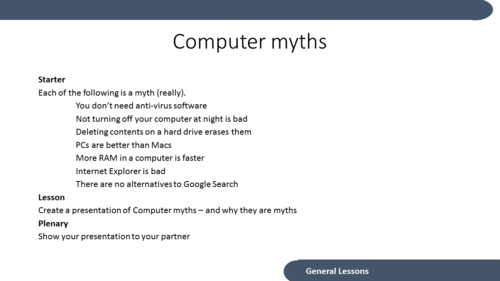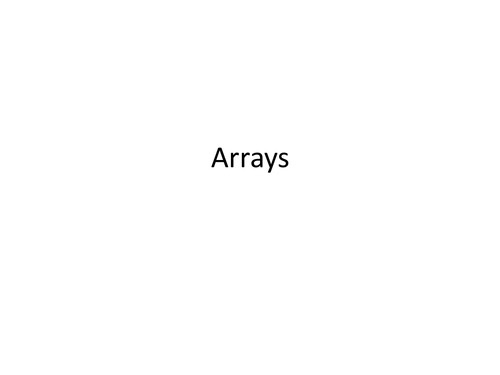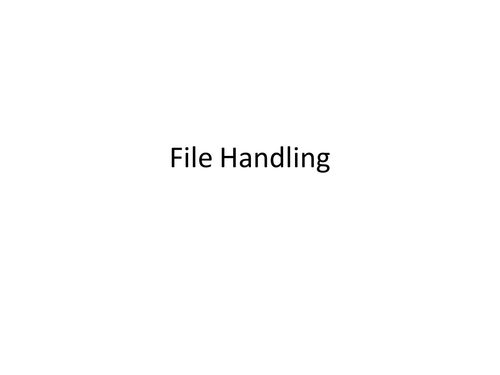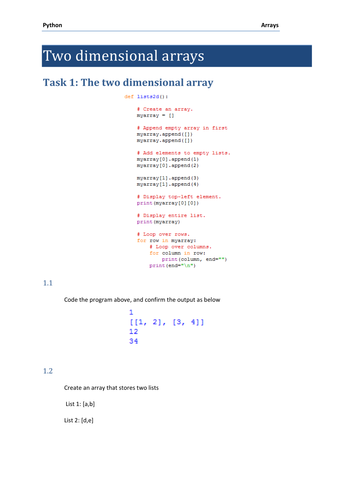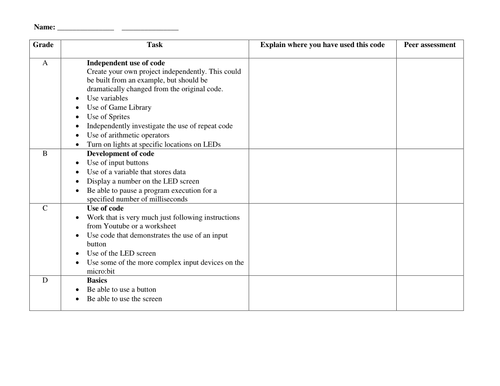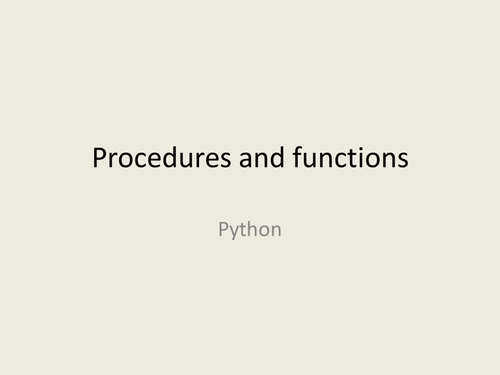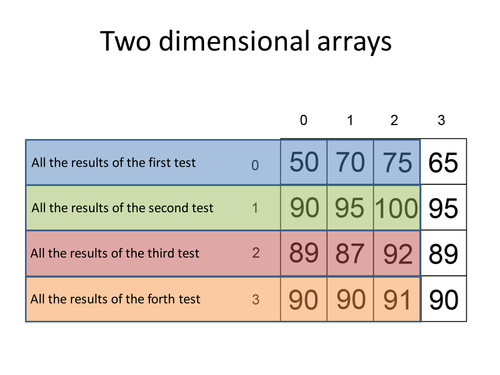
545Uploads
260k+Views
83k+Downloads
Computing

Generalisation lesson Computing (late KS3 or GCSE)
Full lesson to explain generalisation to your students
Learning objectives:
To understand that patterns are important using algorithms
To know that generalisation helps us to create programs
This is taught by tic-tac-toe and counting rectangles. An enjoyable lesson for the students.

Thinking skills for GCSE Computing
Cards that can be cut out or used as a display for thinking skills in computing. Very important for classes!

The Purpose of the CPU Revision Pack for OCR Computer Science
Revision pack for the purpose of a CPU. Designed for OCR Computer Science (9-1) J276 but is more than useful for Computer Science students studying AQA and other exam boards.Â
Contains a revision booklet for the students, and a questioning activity

Fetch Execute Computer Architecture Lesson for OCR Computer Science
Complete lesson for the Fetch Execute cycle. Designed for OCR Computer Science (9-1) J276 but is more than useful for Computer Science students studying AQA and other exam boards.
Contains a PowerPoint presentation, and two worksheets.

80 Quick Computing Starters for KS3
An incredible amount of generic starter ideas for KS3 computing lessons.
They are aligned to the Computing programme of study for Key stage 3: offering you some ready-planned (no teacher time required) starters for your lessons.
Generic starters are offered, as well as specialist starters covering the following topics:
Computational abstractions
Key algorithms
Programming
Boolean logic
Hardware and software
Instructions within a computer system
Data storage
Creative projects
Digital artefacts
E-Safety
All designed to help you improve your practice, and are formatted for you and ready to go!
This is also offered as part of the great value bundle KS3 Computing without the planning

Computer and computing hardware - KS3
Worksheets and active games for a fantastic full session.
A full and interesting lesson. Worksheets, active learning games, extension tasks, this resource has it all!
Designed for use with KS3 groups.

GCSE Computer Science Revision and Challenge cards for OCR GCSE (9-1) J276
94 Computer science challenge cards that can be used to extend students.
Designed for GCSE Computer Science OCR (9-1) J276 and is suitable for any programming language
These cards are based on the topics that are examined in GCSE Computer science as end of class plenaries, extension tasks or flipped homework tasks. Designed for OCR GCSE (9-1) J276.
Topics covered:
1.1 Systems architecture
1.2 Memory
1.3 Storage
1.4 Wired and wireless networks
1.5 Network topologies, protocols and layers
1.6 System security
1.7 Systems software
1.8 Ethical, legal, cultural and environmental concerns
2.1 Algorithms
2.2 Programming techniques
2.3 Producing robust programs
2.4 Computational logic
2.5 Translators and facilities of languages
2.6 Data representation
This is also offered in the great value bundle KS3 Computing without the planning

GCSE Computer Science 9-1 – Testing and Pseudocode revision
For the AQA GCSE 9-1 Specification, and also suitable for OCR J276.
Contains a series of tasks for revision focusing on testing and pseudocode for students to use in preparation for their exams.
Bundle

Abstraction resources for computing KS3
A fantastic set of resources. Abstraction is one of those topics where teachers may need a little extra help.
Here are three resources that cut through what abstraction is and how students can really get to grips with this concept that is essential for computer science!
Bundle

Google web quest bundle
A bundle to help students use the Internet (and particularly Google) to full potential. Great opportunity to help students get a real grip on the most important search engine.

35 Computing and ICT lesson ideas for KS3
35 ideas (starter and plenary included) fully aligned to the KS3 curriculum. Sometimes we all need a little help with a lesson, or want something “out of the box” that can get going in seconds. These are outstanding ideas, and a full lesson can be built from them in minutes. Some are suitable for a few minutes, or can be used as mini-sessions within your lesson.
The idea is to save you time with the least preparation time possible.
Topics covered include:
Computational abstractions
Key algorithms
Programming
Boolean logic
Hardware and software
Instructions within a computer system
Data storage
Creative projects
Digital artefacts
E-Safety

Arrays (lists) practical for GCSE Computer Science using Python
Teaches students about arrays (lists).
The full lesson includes booklet and homework.
Practical session based around a 60 minute lesson.
This resource uses Python version 3.4

File handling practical for GCSE Computer Science using Python
Teaches students about basic file handing including the basic operations; open, read and write.
The full lesson includes booklet and homework.
Practical session based around a 60 minute lesson.
This resource uses Python version 3.4

Arrays theory for GCSE Computer Science
Teaches students about arrays.
There is also a supporting (free for ever) article about arrays on Medium to support your teaching: https://studeappsblog.medium.com/programming-with-arrays-298d0e594353.
This resource is not based on any particular programming language, so is applicable for any particular language you choose.
It can feel tricky to teach this topic. These resources are there to help you, with the same support that is always avaliable for you when you purchase on of StudeApp’s resources.
Helps with the use of arrays (or equivalent) when solving problems, including both one and two dimensional
arrays.

GCSE ICT Multiple choice questions
More than 500 GCSE ICT multiple choice questions.
One copy has no answers, one copy has the correct answer highlighted in bold.
Possible uses include for games, revision sessions and so on.

2d Arrays (lists) practical for GCSE Computer Science using Python
Teaches students about two dimenstional arrays (lists).
The full lesson includes booklet and homework.
Practical session based around a 60 minute lesson.
This resource uses Python version 3.4

micro:bit (microbit) three lesson KS3 Scheme of work (SoW)
Three lesson scheme of work for KS3 including worksheet and explainations!
Each lesson has video support

Procedures and functions practical for GCSE Computer Science using Python
Teaches students about procedures and functions in Python, a practical session based around a 60 minute lesson.
The full lesson includes booklet and homework, ready to go.
This resource uses Python version 3.x (easily translated to Python version 2.x)

Two Dimensional Arrays (2D Arrays) theory for GCSE Computer Science
Teaches students about two dimensional arrays.
This resource is not based on any particular programming language, so is applicable for any particular language you choose.

The Easter Bunny website (HTML) Computer Lesson
A complete Easter session (could be a lesson, could be longer if you wanted) to get students to create a website.
Full instructions provided - give them the files and the booklet and go. They love changing the text and images and it’s all related the the computing curriculum!
Great for GCSE classes but can equally be used for KS3 as all the materials are there to be used; no teacher prep!
No special software required, uses Notepad and Internet Explorer (all Windows computers have these installed).

